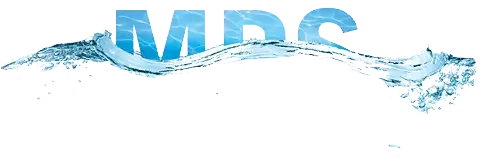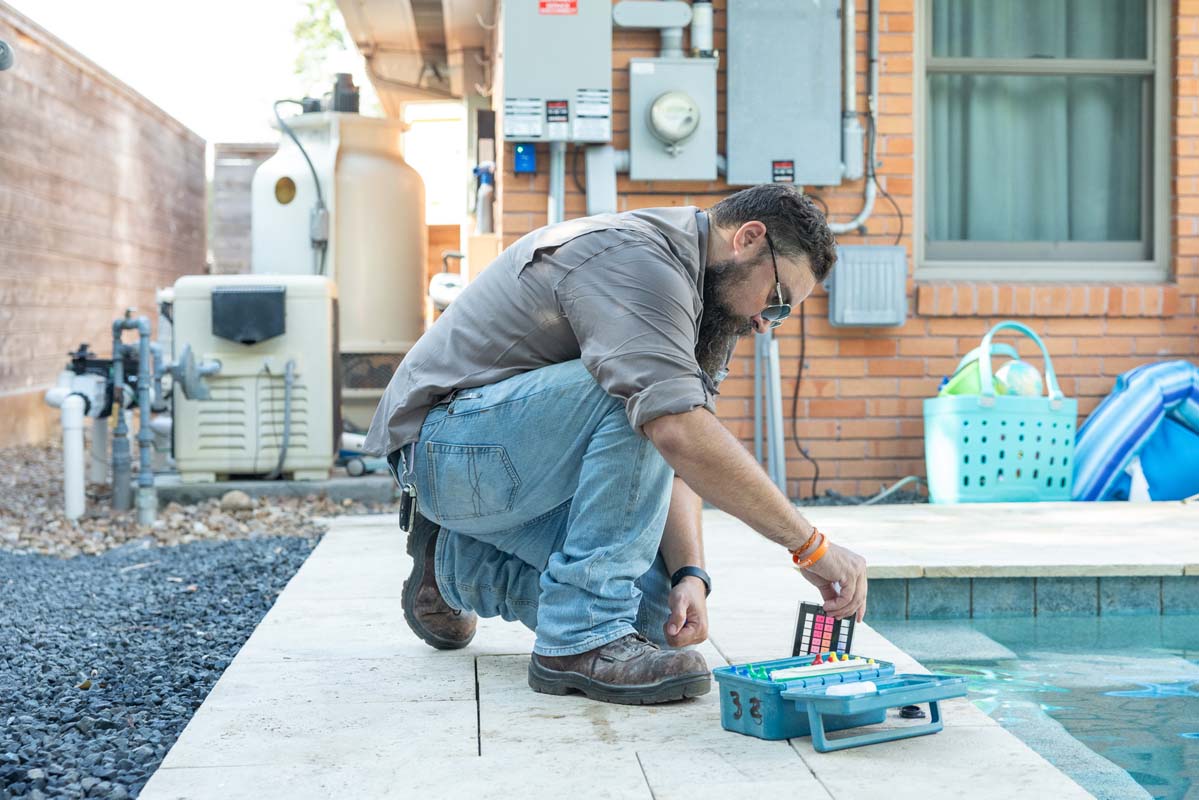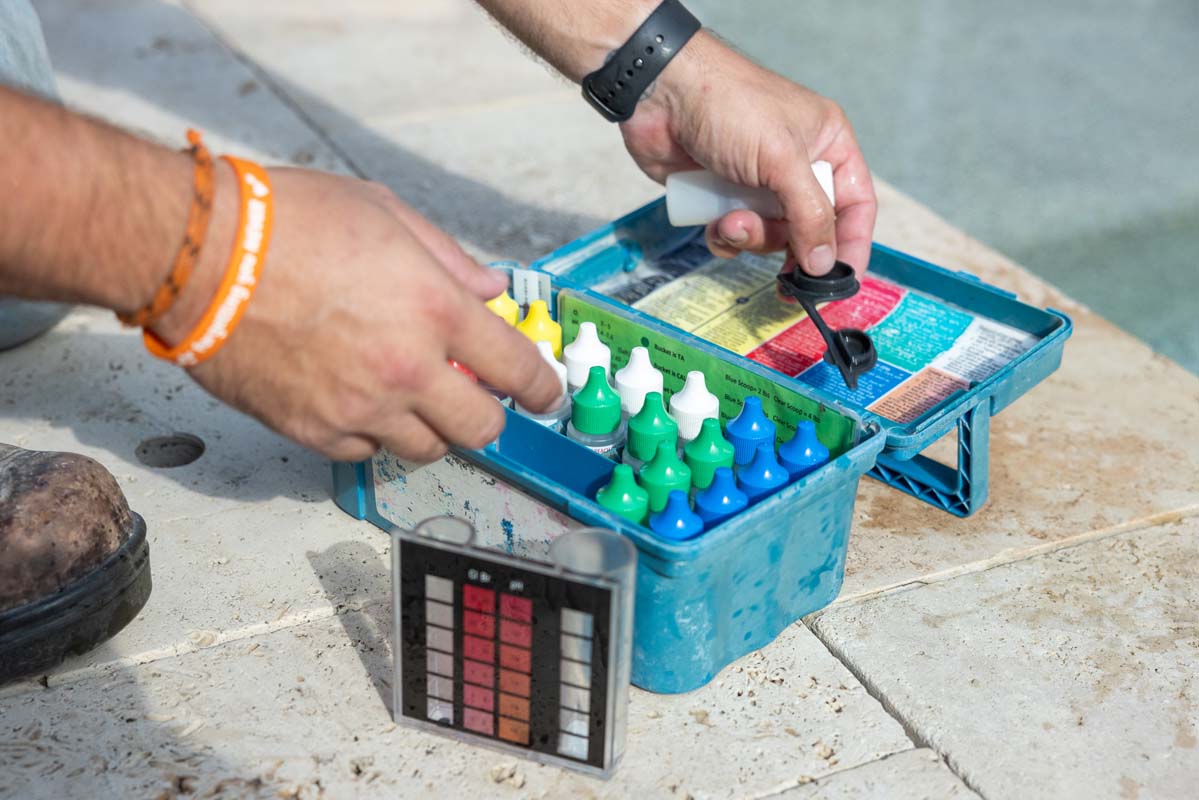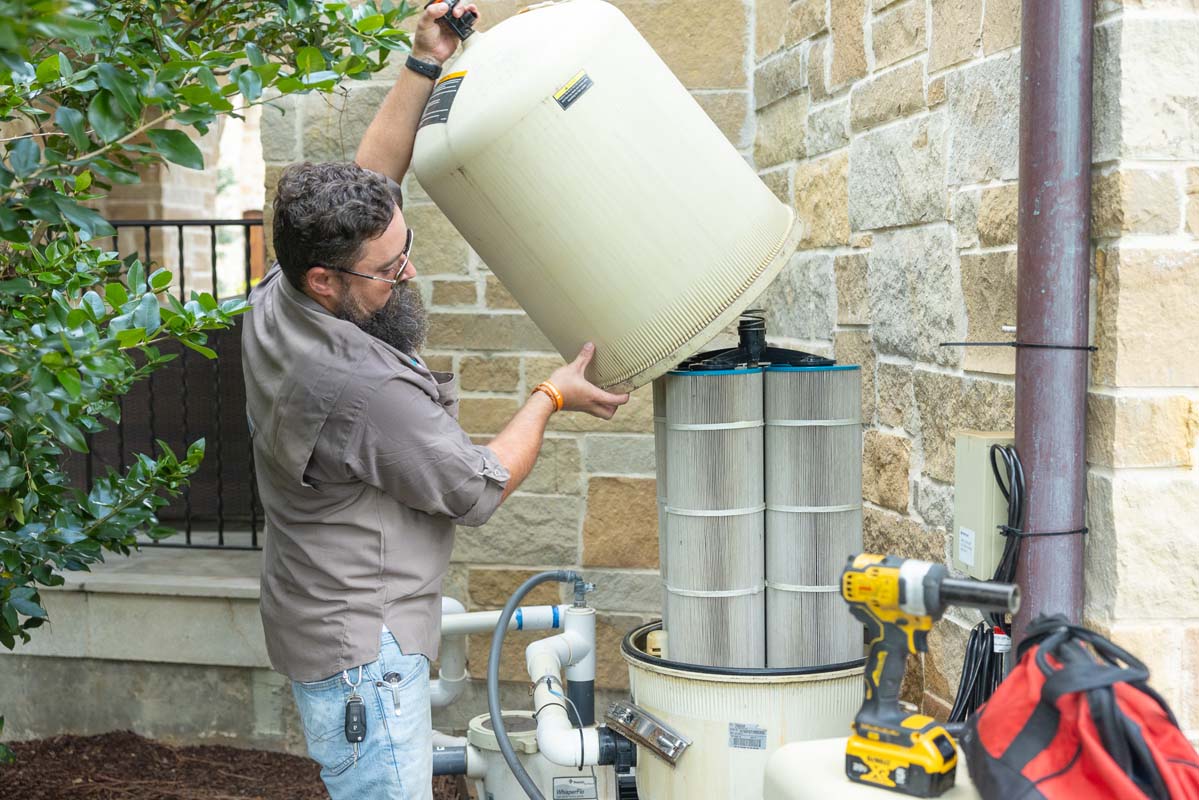How Does Rain Affect Your Pool?
Rain certainly does affect your pool, and this is why pool maintenance is so important. You should perform pool maintenance weekly, but also before and after major weather events like rainstorms. Especially here in Houston, rain is a common occurrence. In fact, Houston actually gets a larger amount of annual rainfall than Seattle, Washington! With rain being so prevalent, proper pool maintenance is key to keeping your swimming pool in tip-top shape. With hurricane season upon us from June 1 through November 30, it’s even more crucial to be prepared. Don’t take chances this hurricane season!
What Rain Does to Your Pool
Rainwater actually changes your pool chemistry. It does this by lowering the pH (potential hydrogen) of the water. This can cause the chlorine in your pool to lose its effectiveness, thus making it easier for germs to survive. This also can lead to increased eye and skin irritation in the pool. So what do you do to prevent this from happening?
Do’s and Don’ts of Pool Maintenance
Proper pool maintenance includes knowing the do’s and don’ts, so let’s talk about what you should and shouldn’t do to prepare your pool for bad weather.
Don’t – drain your pool before a storm.
This is a very common myth about pool maintenance. You should not drain your pool before a storm, though, because it can be dangerous and damaging. Your pool, if installed properly, should be equipped with overflows designed to accommodate excess water, like rain. If you’re still concerned about overflowing, you can reduce the water level by 2-3 inches, but no more! If you lower the water level too much, your pool can be ripped out of the ground or severely damaged by strong pressure from storms. Also, don’t worry – your plants will be fine even if it does overflow. And if it does flood, Manning Pool Service knows just how to clean it up for you!
Do – turn off all electrical and gas lines connected to your pool.
Always turn off the circuit breaker that is connected to your pool equipment before a storm. Make sure your pump and timer are turned off. If the storm hits particularly hard, it could cause a gas leak. Turning off gas lines will prevent this from happening.
Don’t – use a pool cover.
Proper pool maintenance often stresses the importance of utilizing a pool cover, but in the case of a big storm, don’t cover your pool! Yes, debris and foliage will get into your pool and contaminate it. Covering your pool, though, can lead to trouble. Not only can high winds completely rip your pool cover off of your pool, but bad weather can tear or destroy your pool cover. It is costly to replace a pool cover. It is much less expensive to prepare your pool properly and then clean it after a storm.
Do – properly balance your chemicals before a storm.
The best way to make post-storm cleanup easier is by shocking your pool prior to a storm. Pool shock refers to a mixture of highly concentrated chlorine and other chemicals that are designed to kill anything growing in the water, like algae or other contaminants. This will make cleaning a breeze once the storm is over.
Don’t – throw your pool supplies into the pool.
Another common misconception is that throwing your pool supplies into your swimming pool will keep them safe during a rain storm. This is not true. It is unsafe not only for your pool supplies but also for the swimming pool itself.
Do – bring your pool supplies inside to keep them safe.
Before a rainstorm, you should gather up all your supplies and store them in a safe place where they won’t get damaged or blown into the pool by strong winds. Take all supplies indoors – this includes pool maintenance equipment, potted plants, patio furniture, grills, pool cleaner, landscape decor, and pool toys, games, and floats. This will prevent damage.
Don’t – turn on your pool equipment first thing after a storm.
This is a huge mistake a lot of people make after storms. You should never turn on your pool equipment first thing after a storm! This can lead to damage to your equipment.
Do – clean your pool with a skimmer first.
The first step after a storm is to use your skimmer to clean out all the major debris from your pool. Once you have finished that, you can turn on your pump and filter out the smaller debris. Don’t forget to test your water, too!
Don’t Forget a Single Step – Call Manning Pool Service for Pool Maintenance
If this is all a bit overwhelming, don’t worry – Manning Pool Service is here for you. Contact us for excellent Houston pool maintenance today!
Rain and Pool Maintenance | Manning Pool Service – Houston, TX




